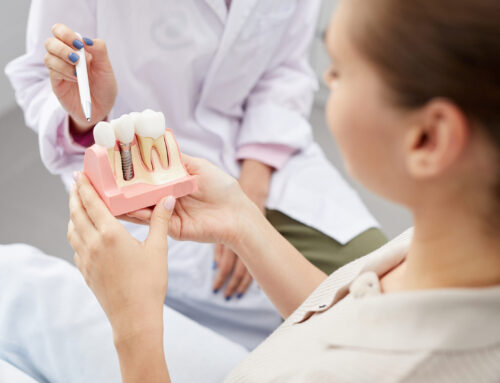Among the most prevalent concerns among both children and adults is bad breath. According to one estimate, up to 30% of adults claim to have terrible breath. Can tonsil stones be blamed for poor breath and other issues with oral health? To properly understand the answer, it is necessary to define tonsil stones and their causes. The following details will also help you learn the necessary details regarding what tonsil stones are:
What Are Tonsil Stones?
Abnormal growths in the tonsils are known as tonsil stones. Since they are formed on or in the tonsils and appear as solid or calcified “rocks,” these formations are known as tonsil stones. These are most frequently identified as white spots on the tonsils or as red, bumpy, or swollen portions of the tonsils. Although tonsil stones and kidney stones are sometimes compared, they are not nearly identical. Tonsil stones often do not pose a significant risk to your well-being and are not linked to disease or deterioration.
Role of Tonsils in Your Body
The immune system’s function depends heavily on your tonsils. Tonsils are small nets that block particles from entering the throat and nose passages, including bacteria. While tonsils are frequently removed without dangerous or unfavorable side effects, most doctors do not always suggest surgical removal if tonsil stones are frequently or difficulty removed.
Formation of Tonsil Stones
The precise makeup of tonsil stones differs. Tonsil stones can cause a painful throat, poor breath, and pain when swallowing; their symptoms can vary from individual to individual. Some tonsil stones could also not show any symptoms. The trapped bacteria and debris built over time can eventually infect the tonsils.
Tonsil stones must be removed as soon as possible when this happens. Typically harmless particles make up tonsil stones. Expected components of this waste include mucous, skin cells, and food fragments. Another factor in the growth of stones is the size of the pockets or “crypts” on the tonsils. Crypts may require less material to gather and solidify if kept clean and well-maintained.
How Tonsil Stones can Affect One’s Dental Health
Even though it might not seem like it, dental and tonsil health are closely related. Maintaining proper oral hygiene can significantly reduce the risk of tonsil stones developing. A toothbrush or cotton swab can be used to eliminate several tonsil stones. The best way to avoid pain or harm is usually to avoid them completely.
Tonsil stones can develop in healthy people. Good health and the occurrence of tonsil stones are not necessarily related since the stones themselves are not signs of inflammation. Insufficient hygiene, more often than not, leads to the production of tonsil stones than poor health.
Prevention of Tonsil Stones
You can resist tonsil stone production with various natural remedies, but routine dental care is one of the most effective. Simple salt water rinses, periodic dental appointments, and routine brushing and flossing can all assist in avoiding tonsil stones and enhance oral health. Debris makes up tonsil stones. Therefore, eliminating tooth plaque can reduce the amount of debris caught in the tonsils.
Most people might need to realize how tightly connected their oral health is to the condition of their tonsils, throat, and nasal passages. Your general health suffers when your dental hygiene is not in good shape.
Conclusion
Tonsil stones, although harmless, can still pose a great threat to your overall appearance due to the bad smell and deteriorating oral health they cause. These stones should be prevented or treated promptly to avoid further oral issues and illnesses. If you are looking for a reliable orthodontic clinic to upgrade your oral health, contact our experts at Gentle Dentistry for the most effective solutions.




